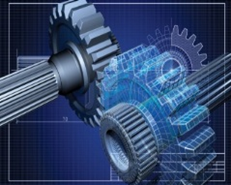5В072400-Technological Machines and Equipment
Model of the graduate of the Bachelor’s
of the educational program «Technological machines and equipment (by branches)»

The "6В07103-Technological Machines and Equipment (by branches)" specialty - a specialist who analyzes the causes of technological process disturbances in agricultural and industrial engineering, develops measures for their prevention with obtaining qualitative measurement results capable of applying their skills in developing and creating competitive engineering products that function based on modern methods, innovative computer modeling and accurate calculations. Future professionals are called upon to provide technological processes in production, design the latest technologies and work effectively with modern machines and equipment. |
| The purpose of the educational program |
| The preparation the qualified specialists for the agro-industrial complex, which requires highly professional personnel to ensure effective socio-economic development of the country, as well as improving the quality of education, strengthening its practical importance and focus on solving specific production problems. |
| Awarded degree |
| Bachelor of Natural Science of the educational program «6В07103- Technological machines and equipment (by branches) » |
| List of specialist positions |
| Engineer, technologist, operator-operator,, mechanic of technological machines and equipment (by branches); Design Engineer (Designer); Engineer for commissioning and testing; Repair engineer; Mechanic; Design engineer. |
| Objects of professional activity |
|
The object of the professional activity of specialists are the industries of mechanical engineering and rural production, government bodies, research and military-industrial complexes, firms of various forms of ownership, machine-building plants; food industry enterprises, as well as control and production laboratories. |
| Functions of professional activity |
|
- Organization of the work of machines and their operation. - Ensuring control over compliance with the required rules in the manufacture of products. - Preparation of technical documents and reports on the quality of the manufactured equipment. - Maintenance of environmental safety at work. - Implementation of the calculations and the development of machine parts and structures in compliance with all technological standards. - Maintenance of instruments and equipment. - Organization of experiments and analysis of the results. - Skills of installation and adjustment of innovative products. - Development and scheduling of work for departments. - Planning of personnel activities and their remuneration - Carry out an analysis of the costs necessary to establish quality production. |
| Personal characteristics |
|
1. Common civil qualities: patriotism, expressed in love for the Motherland, citizenship, determined by an active lifestyle, civil self-consciousness, law-abiding, understanding of their civil rights, freedoms and duties. 2. Spiritual and moral qualities: humanity, honesty, conscientiousness, tolerance to other beliefs, world views and customs, decency, mercy. 3. Intellectual qualities: erudition, critical and emotional thinking, fluency in English, information and communication technologies, the ability to learn throughout life. 4. Business qualities: hard work, responsibility, flexibility, adaptability, ability to work in a team, ability to take non-standard decisions in emergency situations. 5.Organizational and volitional qualities: determination, self-demanding, , self-criticism, state of being organized, communicability, the existence of a shared culture, will, the ability to achieve the intended purpose. 6. Special qualities: love for nature |
| Bachelor's learning outcomes (Dublin descriptors) |
|
At the end of the educational program graduates are able to: 1) demonstrate knowledge and understanding in the field of study, based on advanced knowledge of the area; 2) apply knowledge and understanding at the professional level, formulate arguments and solve problems of the studied area; 3) collect and interpret information to form judgments taking into account social, ethical and scientific considerations; 4) communicate information, ideas, problems and solutions, to both specialist and non-specialist audiences; 5) learning skills necessary for independent continuation of further education in the field of study. |

